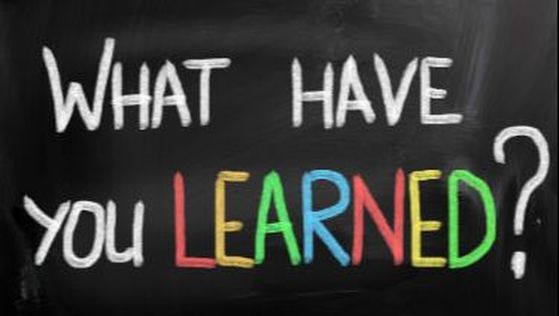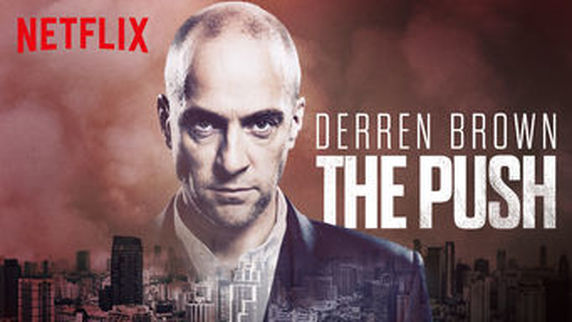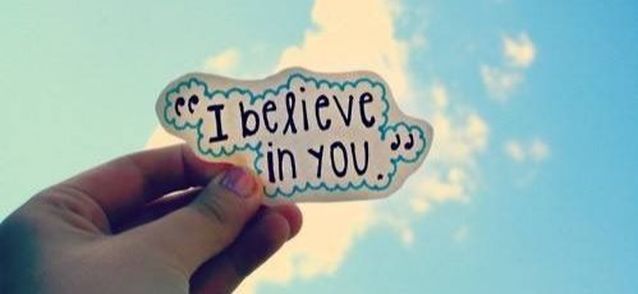|
I recently read the article linked to below from the CEO of Foundr magazine, Nathan Chan, about the many lessons he learned in creating Foundr over the last 5 years. From Novice to CEO of a Multi-Million Dollar Media Company: 37 Lessons from 5 Year of Building Foundr I urge you to read the article as all of the lessons are good, but here are the Top 5 that I think are most important and why you should embrace them in your life and entrepreneurial journey. #7: Your best ideas are the ones that keep coming back to you. You’re not going to come up with a genius idea on the spot. It has to keep coming back to you, and you have to mull over it like a good glass of red wine and let it sit with you before you execute on it. I wholeheartedly agree with this. It is the ideas that keep burning a hole in your mind and that you can't get rid of that end up being the best, no matter how crazy they sometimes sound. #12: It takes 7-10 years to build anything of true worth and significance. Any company that you truly admire took over a decade to build. I’m prepared to play the long game with Foundr. As I've written about and spoken about many times, it comes down to the DCP formula. Discipline. Consistency. Persistence. If you have those day in and out for years, you will win. You will outlast. And you will flourish. #14: Never rely on one single customer acquisition channel. At Foundr, I’m always extremely cautious of dominating one channel, and always work to layer in more over time. For us, first it was Instagram, then it was email, then it was podcasts, then it was organic SEO and blog, now it’s PPC (pay-per-click advertising) and soon YouTube. The more channels we can use to generate a significant amount of traffic, the less risk we face. The more comfortable you get and more reliant you get on one thing that works is great, until it doesn't work anymore. In today's world, that can change in an instant. Whole businesses can be decimated seemingly overnight (Remember, Kodak?). You must always be on the hunt for and willing trying to new channels to grow your reach and customer base. #18: Your business lives and dies by cash flow. It’s the oxygen of your startup, especially if you’re bootstrapping and not using someone else’s money to survive. You always need to make this a focus in order to build a sustainable business. I confess that I have had trouble getting along with the CFOs/Accountants we have had in our businesses over the years because of exactly this. Cash is king and is what matters. No matter how good your business looks on paper or from an "accrual" accounting standpoint, you cannot stay in business without cash paying the bills. Therefore, much to the dismay and frustration of my CFOs and Accountants over the years, I have always focused on cash and challenged the health of our businesses (and thus by default challenged the analysis of the CFO and/or Accountant) when things look good on paper, but I can see cashflow challenges not being focused on. It has served me and the business well and kept us alive in the hard times. Cash is king. #26: The smartest entrepreneurs reduce risk and maximize upside however they can. One thing my mentor Mitch Harper taught me is to always reduce risk however you can. This is something I obsess over now when it comes to making critical business decisions. How can I stack the deck in our favor on both sides of the table? Contrary to belief, the best entrepreneurs are not huge risk takers. They take calculated, asymmetrical risks. That means that for the little bit of risk they do take, the reward is exponentially higher. They also look at all the angles and look for how they can still succeed, even if the risk doesn't pan out or fails. You should always be looking at the whole picture and for how you can get massive upside for a small amount of risk. BONUS! #37: To build a successful business, it has to be an obsession. You have to want it so badly and you have to be prepared to do the work. ...Yep
0 Comments
Kids are some of the best teachers. Seemingly out of nowhere, they will do or say something that is such a great lesson for life, without even realizing it. The innocence of it all makes it that much better. Take my 5-year old daughter, Hannah, for instance. The other day, we were driving down the road and we got onto a topic of one of the kids in her Tae Kwon Do class that dropped out of the class. She was peppering me with questions as to why this kid had left and wasn't coming back. We went back and forth for a while (if you are a parent, you know this routine), to where I finally said, "Sometimes people just give up." Hannah sat in silence for a while as I continued driving. I could see her in the rear view mirror and could tell she was thinking and pondering on the subject. It was total silence for 3-5 mins. Then, she spoke up. She said, "Daddy, people need to give up on giving up!" Immediately I smiled in only the way a proud dad can and said, "Honey, you are right. Yes, they do." It is amazing how one little innocent sentence from a 5-year old can carry so much weight, wisdom, and importance. That one sentence is one that everyone in the world should hear. You need to hear it. You need to give up on giving up. Is there something that you have given up on or considering giving up on? Why? Can you change your way of thinking and actions so that you can succeed with it? If you are committed to something, then be committed. Go after it with tenacity and tell yourself that giving up is not an option. Make "Give up on Giving Up" you daily mantra and go make it happen! OK, first off, let me say that this show is disturbing on many, many levels. It is essentially about how far peer pressure, social compliance, and coercion can take an individual. And in the case of this show, which is basically a social experiment and reality show all in one, it is "pushing" someone off the roof of a building and murdering them. As many of you know, I am a voracious student of the mind, the subconscious, and our conditioning; and as I watched this show to dissect it to truly understand how a normal human being can reach the level of actually considering killing someone - in 1 hour, a number of things dawned on me - some great lessons for both life and business. First, is how easily we can be manipulated through social pressure to do things. In fact, the opening scene of the show is a tiny experiment to show how easy it is to manipulate someone just by impersonating an authority figure. A total stranger is persuaded to essentially kidnap a child in minutes because they think a well-rehearsed actor, playing a police officer, is real, so they follow the instructions of the "officer." It was amazing to see how easily it was for someone to impersonate an authority figure under the guise of an emergency and get someone to comply. The lesson I took from this is how readily we can turn over control of our lives - especially in an instant age where things move so fast. We almost forget to stop and think because our minds are moving non-stop. For me, it highlighted the fact of how important it is to practice and work on our emotional intelligence and control over our emotions - being careful not to let them "just run us," but instead choosing whether we let them dictate our reactions and actions. The next lesson I took from this tiny little experiment is that we must be healthy skeptics. We must, as Thomas Jefferson said even in his time, "Question with boldness even the existence of a God; because, if there be one, he must more approve of the homage of reason, than that of blind-folded fear." Now, my point is not so much about religion, but about the fact that we must not do things blindly or out of fear, and get back to using reason in our lives and business pursuits. Now, granted the show is a total setup for the target person, with every psychological trigger choreographed ahead of time, it does highlight some very important issues with societal pressures. First, the size of social presence has a huge affect. The bigger the crowd doing something, the more likely most people will go along. For a great example on this (besides watching The Push), check out this video of the "Dancing Guy." The second thing I took away is how much the need to "fit in" for people can blind us to doing the right thing. The thing we know we should do. There are so many times in the episode where you can see the target of the show agonizing over doing what he knows is right and sometimes even vocalizing it...only to cave and go along with crowd. Lastly, is something we already all know, but maybe don't necessarily think about - when you proceed in a lie, the deeper you go into it leads to a terribly tangled web that is almost impossible to get out of, eats at you, and impairs your judgement. (Well, only if you have a conscience of any kind). I urge you, if you watch the show, ask yourself at what point you would stop and not continue to follow the crowd. My biggest takeaways and lessons for life and business were the following:
The biggest lesson? Stand up for yourself and make a stand to do what you know is right no matter which way the herd or lemmings are going. When is the last time you believed in someone when they didn't believe in themselves? More importantly, when was the last time you told them? Have you ever had anyone tell you that they truly believed in you and your potential or told you something about yourself that even you didn't believe? It probably made you feel pretty good. It probably made you feel a little more confident, while questioning if what they were saying was true. But, if someone you trust tells you they believe in you and your potential enough, you start to believe it. Then, you start to become it. Growing up, my grandfather used to tell me I could be President of the United States some day. He would tell me this all the time. As a kid, I didn't think anything of it. But, as I have gotten older and started to understand life and learn all the amazing things that I have been lucky to do, I have found myself reflecting back on those conversations and asking myself, what if? What if I could be President? Of course, there is another side to this, which is do I really want to? But parking that to the side for a minute, as I think about it and think about what my grandfather used to say to me - yeah, it's definitely possible. More importantly, what I take from remembering these conversations is the incredible abundance of possibilities that are all around us in our lives. To me, that is the real gift from my grandfather. By telling me I could be someone that most would think is not possible or crazy, his words opened up a new world of thinking for me. And it is that type of big, bold, and sometimes outlandish thinking that I feel has helped me to succeed and create huge opportunities in life. I now use this lesson to believe in others and help them reach their true potential and see the possibilities around them. How about you? Is there someone that you can show belief in and help to understand their true gifts? Tell them. Give them permission to own their power and become who they were truly meant to be. Who knows, with your encouragement, they may be President some day... |
Click Below to Join Misfit Nation and Get Your Free Copy of "The Top 10 Lessons to Thrive and Succeed!"
Archives
July 2024
Categories
All
Follow Misfit on Twitter!
|
© MISFIT ENTREPRENEUR 2018. ALL RIGHTS RESERVED. Terms and Conditions. Privacy Policy. Affiliate Disclaimer





 RSS Feed
RSS Feed

